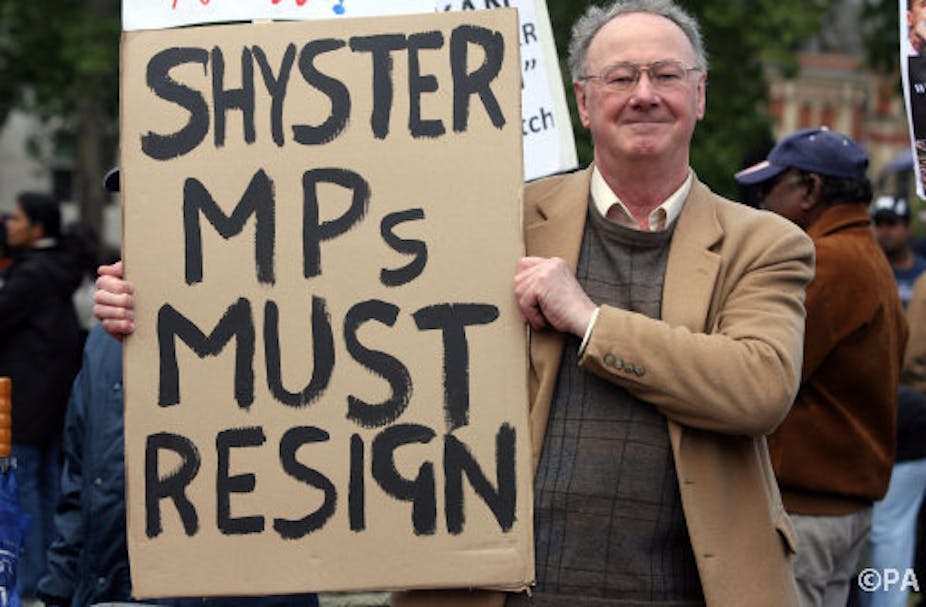The former culture secretary, Maria Miller, is the latest in a series of MPs to have been caught up in an expenses controversy. The issue of what parliamentarians do with their allowances has now embarrassed or damaged a great many MPs, from Gordon Brown downwards. In a few cases, as with Miller, it has led to resignations. It has also, for a few, led to prison.
Since the first revelations in the Daily Telegraph in May 2009, which saw parliament lose its speaker, there has been a continual flow of expenses-related stories. In 2011 Liberal Democrat MP David Laws resigned; in 2012 Labour MP Denis MacShane stepped down (and was later imprisoned); and in 2013, George Osborne (and many others) were exposed over their use of first-class train tickets.
In parallel, there were rows over the MPs’ pay rise and the continued existence of IPSA, the independent regulator. Scrutiny of allowances has also been seen in local government, the police and even universities. But expenses revelations don’t always end in resignation or prison. What makes each case different?
How it gets out
The first difference is how someone is found out. The chain of accountability is often complicated. Just after the scandal, David Cameron himself said:
What the Daily Telegraph did – the simple act of providing information to the public – has triggered the biggest shake-up of our political system. It is information – not a new law, not some regulation – just the provision of information that has enabled people to take on the political class, demand answers and get those answers.
Actually, finding the information can be trickier than it looks. Far from being a “simple” story of “information provision”, the expenses scandal is a great example of how difficult it can be to bring information to light.

The FOI request for a selection of MPs’ expenses was first made in 2005. It then took a four-year campaign by journalists using FOI laws, the FOI appeal system and then the courts. The information was finally released by a very old-fashioned mode of disclosure: a leak. Interestingly, according to the original Telegraph story, Miller’s expenses problems appear to have stemmed from a well-placed tip-off rather than detailed public scrutiny.
The next step, “demanding answers”, can be just as difficult. Once information is disclosed, holding the MP in question to account requires the right context and environment. The level of media interest and the “amount” of wrong done determines how any scandal unfolds, and what (if any) price the politician pays.
Who did it?
The second factor is, of course, the individual politician involved. Who the politician is, how they react, and the media and public view are all crucial. George Osborne was unlikely to suffer more than blushes over his minor train ticket kerfuffle, and was very well protected. It may even have helped that he had history of previous minor “slip-ups”. Miller’s situation was far more precarious. Her very brief first apology and apparent attempts to “influence” the press and commissioner worsened the situation. Her actions lost the support of the party; just as importantly, her position at the centre of the Leveson reforms made her unpopular (to say the least) with large swathes of the press.
Five years on from the storm of 2009, the expenses issue continues to bubble away under the surface of Westminster politics, occasionally bursting to the top unpredictably as the result of leaks, tip-offs or assiduous research and throwing up sudden squalls of varying ferocity.
When controversy reappears, the exact effect depends on many things: how the information was obtained, how it is then used and who it relates to. The only certainty is that we haven’t heard the last of expenses yet.

